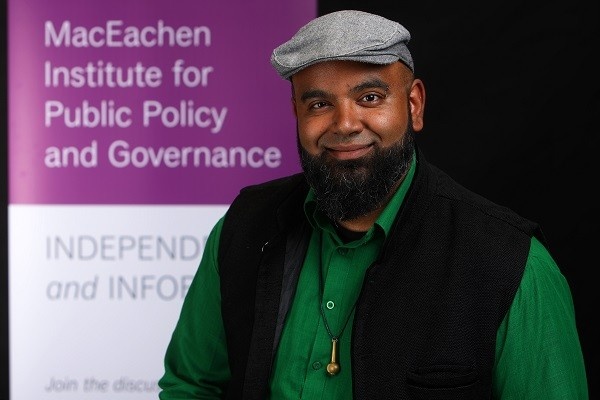Ajay Parasram

Ajay Parasram is a multigenerational, transnational byproduct of British colonialism whose background connects South Asia, the Caribbean, and Turtle Island (North America). He teaches in the departments of International Development Studies and History and is cross-appointed in the department of Political Science. Ajay has a PhD in Political Science with specializations in International Relations, Comparative Politics, and Political Economy from Carleton University, and edited a grassroots newspaper while in Ottawa. His research coalesces around the problem of the “colonial present,” or the various ways colonial encounters continue to structure and limit the range of what seems possible. This has taken the form of researching, writing, and consulting on the subject of Canadian foreign, immigration and citizenship policy, race and racism, decolonization, as well as colonial/postcolonial state formation and development. Ajay has also worked as a federal public servant, and a researcher based at the Asia Pacific Foundation of Canada.
In his own words
Why does policy matter?
Policy has a structuring influence on how earthlings experience life. Effective public policy is long-term and transformative in nature. Ineffective public policy is short-term, driven by electoral cycles rather than connected to the developmental rhythms of communities and eco-systems. Policy is the network through which extraordinary human potential can be directed towards addressing our collective action failures, and for this reason ought to be at the forefront of everyone’s thinking.
What do you hope to accomplish during your time as a founding fellow?
I plan to bring a critical and diverse perspective to public policy debates. For example, given our First Past the Post system, what kinds of creative interventions might we roll out ahead of upcoming elections? I plan to work alongside underrepresented communities in the Halifax area to develop a policy document intended to help community members hold their elected officials to account by focusing on the experience, rather than rhetoric, of public policy.
